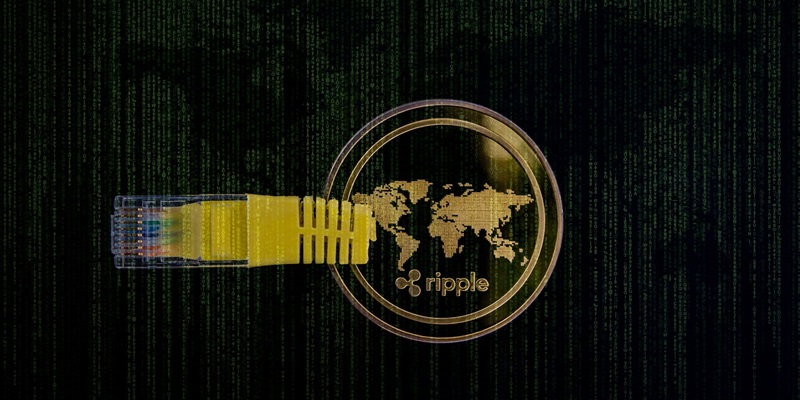The ongoing dispute between Ripple and the U.S. Securities and Exchange Commission (SEC) continues to influence the bullish sentiment surrounding XRP. A recent development saw a New York court ruling on October 31 to extend the deadline for the SEC to file its briefs for its appeal until January 15, 2025. This decision followed the October 24 request by the SEC’s new enforcement director, Sanjay Wadhwa, after the resignation of his predecessor, Gurbir Grewal. This extension provides the SEC more time to build a stronger argument in the case against Ripple.
Legal Proceedings Influencing Market Sentiment
Judge Torres’s Mixed Ruling on XRP Sales
Judge Analisa Torres has already delivered a mixed ruling, stating that XRP sales on centralized exchanges do not constitute investment contracts, while sales to institutional investors do violate securities laws based on the Howey test. This split decision has become a cornerstone in the ongoing legal battle, significantly affecting investor sentiment and market perceptions. Ripple responded swiftly by filing a civil appeal pre-argument statement, suggesting a lack of merit in the SEC’s case. The legal team’s counterpunch comes as no surprise, as Ripple has consistently argued that the SEC’s application of securities laws to its digital currency operations is misguided and harmful to innovation in the crypto space.
This judicial stance sets a critical precedent that could shape future regulatory policies. If Ripple’s argument holds, it may lead to a re-evaluation of how digital assets are classified and regulated. The global crypto community is watching closely, understanding that a favorable outcome for Ripple could pave the way for broader acceptance and adoption of digital currencies. Experts believe that clarity in regulatory frameworks can increase institutional investment and consumer trust, essential for the maturation of the cryptocurrency market.
Implications of the Legal Battle for the Cryptocurrency Market
The outcome of this legal battle could have significant implications for the entire cryptocurrency market in the United States. The ongoing appeal by the SEC has not been well-received by the global crypto community, with many arguing that the prolonged uncertainty hampers innovation and market growth. Legal experts predict that Ripple’s success in the case could benefit broader cryptocurrency adoption, leading to a more favorable regulatory environment that encourages investment and development.
The legal uncertainties have caused XRP’s price to underperform, especially during the 2021 crypto bull run. Even though XRP has maintained a support level above 50 cents recently, the overhanging legal issues continue to suppress its bullish sentiment. As the market waits for a resolution, investors are cautious, weighing the risks associated with regulatory actions against the potential rewards of speculative investments. The case has highlighted the need for clear and consistent regulatory guidelines that can provide a stable foundation for the crypto market’s growth.
The Broader Political and Market Context
Presidential Elections and Regulatory Speculations
With the U.S. 2024 presidential election drawing near, many in the crypto community, especially XRP holders, are hopeful for a win by Republican candidate Donald Trump. Trump has promised to develop regulations that support the growth of the Web3 industry and has suggested he would replace the current SEC Chair, Gary Gensler. This political shift could lead to substantial changes in the regulatory landscape, which many believe could end what they see as the SEC’s overreach in crypto regulation. Market participants are closely monitoring political developments, understanding that changes in leadership and policy could dramatically alter the trajectory of the crypto industry.
Trump’s proposed regulatory framework aims to foster innovation while ensuring consumer protection, balancing the needs of a fast-evolving industry with the government’s mandate to oversee financial markets. His administration’s potential policies could alleviate some of the current regulatory pressures, providing a more conducive environment for startups and established companies alike to explore blockchain and crypto technologies without fear of sudden and severe legal repercussions.
Anticipating Market Trends Amid Legal Uncertainties
Despite the legal challenges, the crypto market is anticipating an altseason that could begin in the coming months and reach its peak in the first half of 2025, aligning with historical market trends. Analysts suggest that this period could see a resurgence in the value of various altcoins, including XRP, provided there is a resolution or significant development in the Ripple vs SEC case. Investors are preparing for potential upward trends by diversifying their portfolios and keeping a close eye on market signals that could indicate the start of this anticipated bullish phase.
In the meantime, market participants are engaging in strategic planning to mitigate risks associated with ongoing legal uncertainties. They are emphasizing the importance of due diligence, staying informed about legal proceedings, and being ready to pivot their investment strategies as new information emerges. This proactive approach helps in navigating the complex and volatile crypto market while maintaining an eye toward long-term growth and profitability.
Conclusion
The ongoing legal battle between Ripple and the U.S. Securities and Exchange Commission (SEC) continues to affect the bullish outlook for XRP. A recent update involved a New York court decision on October 31, which extended the deadline for the SEC to file its briefs for an appeal until January 15, 2025. This extension came after the SEC’s new enforcement director, Sanjay Wadhwa, requested additional time on October 24, following the resignation of former enforcement director Gurbir Grewal. This additional time allows the SEC to strengthen its case against Ripple. The dispute has garnered significant attention within the cryptocurrency community, highlighting the complexities and regulatory challenges faced by digital currencies. As the case progresses, it remains a pivotal moment for the future regulatory landscape of cryptocurrencies. The extension gives both parties more time to prepare their arguments, potentially leading to significant implications for the entire crypto market and its regulatory environment.

